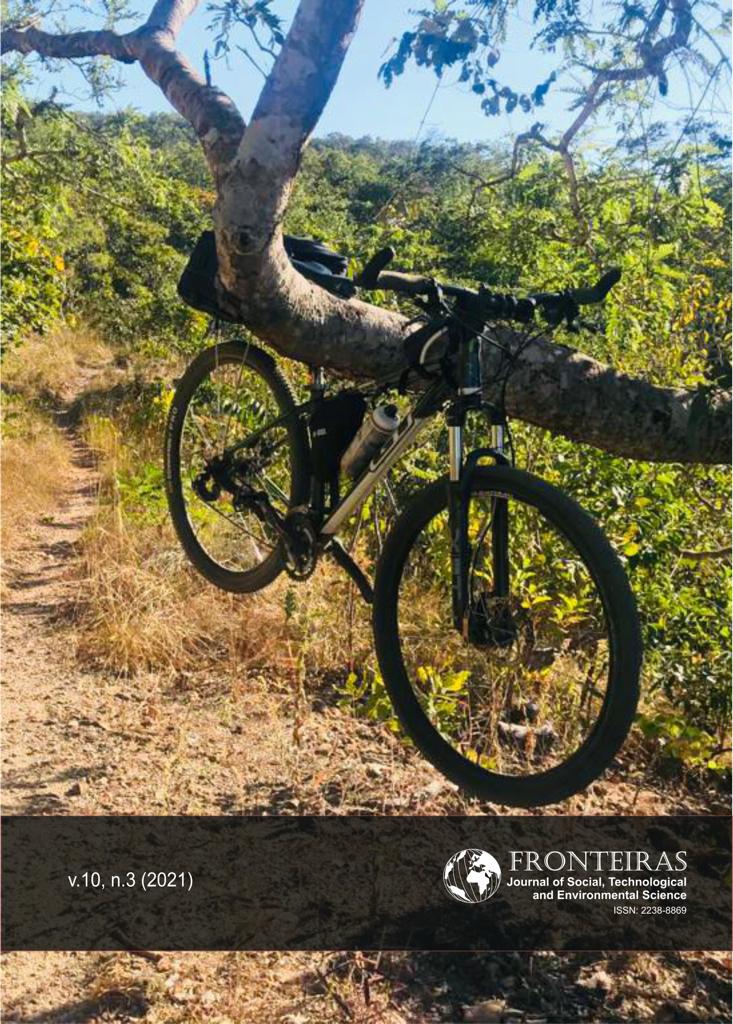Gobernanza y Perspectivas sobre Acreditación y Calidad en la Formación Inicial Docente: Estudio en Universidades Chilenas
DOI:
https://doi.org/10.21664/2238-8869.2021v10i3.p227-243Palavras-chave:
gobernanza, modelos formativos, carreras de educación inicial docenteResumo
El artículo analiza la relación entre calidad y acreditación en modelos de gestión universitaria desde la perspectiva de los actores. La metodología de investigación asumió el enfoque de teoría fundamentada, desde lo que se elaboró una muestra estructural representativa de tres casos de universidades chilenas con acceso a estudios de pregrado de élite, privadas de acceso masivo, y pública masiva, en torno a lo que se realizaron entrevistas semi-estructuradas y directivas, para proceder a un análisis axial. A partir de los resultados, describimos las teorías sustantivas de los actores en el sistema sobre acreditación y calidad, así como se formula una teoría formal al respecto de estas dimensiones claves del componente ideacional de la gobernanza educacional en el sistema terciario.
Referências
Breckenridge J, Jones D 2009. Demystifying theoretical sampling in grounded theory research. Grounded Theory Review 8: 1-14.
Brunner JJ., Labraña J., Ganga F, Rodríguez-Ponce E. 2020. 'Gobernanza de la educación superior: el papel de las ideas en las políticas', Revista Iberoamericana de Educación, 83: 211-38.
Brunner JJ., Pedraja-Rejas L 2017. Los desafíos de la gobernanza de la educación superior en Iberoamérica. Ingeniare. Revista Chilena de Ingeniería 25: 5-7.
Burns T., Köster F 2016. 'Modern governance challenges in education.' En Tracey Burns and Florian Köster (eds.), Governing Education in a Complex World (OECD: Paris), p. 17-39.
Charmaz K. 2006. Constructing grounded theory. A practical guide through qualitative analysis. SAGE Publications, Londres, 208 pp
Cuenca R. 2020. 'El futuro de los sistemas educativos en clave de gobernanza. Una introducción', Revista Iberoamericana de Educación, 83: 9-11.
Davidson C 2009. Transcription: Imperatives for qualitative research, International Journal of Qualitative Methods 8: 36-52.
Flores R 2009. Observando observadores: Una introducción a las técnicas cualitativas de investigación social. Ediciones Universidad Católica de Chile, Santiago, 394 pp.
Ganga-Contreras F, Mancilla M 2018. Universidades latinoamericanas: Orígenes, fuentes y factores determinantes de la estructura. En F Ganga-Contreras, O Leyva Cordero, A Hernández Paz, G Tomez González, L Paz Pérez. Investigaciones sobre gobernanza universitaria y formación ciudadana en Educación. Fontamara, Santiago, p. 19-31.
Glaser B, Strauss AL 1967. Theoretical sampling. En B Glaser, AL Strauss. The Discovery of Grounded Theory. Strategies for Qualitative Research. AldineTransaction, New Brunswick, p. 45-79.
Griffiths A, Haigh N, Rassias J 2007. A framework for understanding institutional governance systems and climate change: The case of Australia. European Management Journal 25: 415-27.
Heitor M, Horta H, Salmi J. 2016. 'Looking Forward: Building Capacity in Latin America.' En Hugo Horta, Manuel Heitor and Jamil Salmi (eds.), Trends and Challenges in Science and Higher Education. Building Capacity in Latin America (Springer: New york), P. 289-310.
Hydén, Göran, Julius Court, and Kenneth Mease. 2004. Making sense of Governance: Empirical evidence from Sixteen Developing Countries (Lynne Rienner Publishers: Boulder).
Johnstone, D. Bruce, Alka Arora, and William Experton. 1998. The financing and management of Higher Education: A status report on Worldwide Reforms (The World Bank New York).
Kennedy, KJ. 2003. 'Higher Education Governance as a Key Policy Issue in the 21st Century', Educational Research for Policy and Practice, 2: 55-70.
Kolb DA 2015. Experiential learning. Experience as the source of learning of development. Pearson Inc., New Jersey, 416 pp.
Ley 20.903 2016. Crea el sistema de desarrollo profesional docente y modifica otras normas [citado 10 de abril 2021]. Disponible en https://www.bcn.cl/leychile/
Marginson, S. 2016. 'Global Stratification in Higher Education.' En Sheila Slaughter and Barrett Jay Taylor (eds.), Higher Education, stratification, and workforce development. Competitive advantage in Europe, the US, and Canada (Springer: Texas), p. 13-34.
Niedlich S, Bauer M, Doneliene M, Jaeger L, Rieckmann M, Bormann I 2020. Assessment of sustainability governance in higher education institutions—A systemic tool using a governance equalizer. Sustainability 12: 1-17.
Pedraja-Rejas L, Rodríguez-Ponce E, Rodríguez-Ponce J, Ganga-Contreras F, Durán-Seguel I 2020. Flexibilidad en la toma de decisiones: un estudio exploratorio en una institución de educación superior. Revista Espacios 41: 22-32.
Rodríguez-Ponce E, Fleet N, Pedraja-Rejas L, Rodríguez-Ponce J 2012. Efecto de la calidad de la información sobre la acreditación institucional: Un estudio exploratorio en universidades chilena. Ingeniare. Revista Chilena de Ingeniería 20: 368-75.
Salmi, J. 2009. The challenge of establishing World-Class Universities (The World Bank: Washington, DC).
Salmi, J. 2017. The Tertiary Education Imperative. Knowledge, skills, and values for Development (Sense Publishers: Rotterdam).
Schmal R, Cabrales F. 2018. 'El desafío de la gobernanza universitaria: el caso chileno', Ensaio: Avaliação e Políticas Públicas em Educação, 26: 822-48.
Skrla L 2007. Transcription. En G Ritzer. The Blackwell Encyclopedia of Sociology. Blackwell Publishing, Malden, p. 1-2.
Slaughter S, Rhoades G. 2004. Academic capitalism and the New Economy. Market, State, and Higher Education (The Johns Hopkins University Press: Baltimore).
Strauss AL, Corbin JM 1998. Basics of qualitative research: Techniques for developing Grounded Theory. SAGE Publication, London, 336 pp.
Downloads
Publicado
Como Citar
Edição
Seção
Licença
Esta revista oferece acesso livre imediato ao seu conteúdo, seguindo o princípio de que disponibilizar gratuitamente o conhecimento científico ao público proporciona maior democratização mundial do conhecimento.
A partir da publicação realizada na revista os autores possuem copyright e direitos de publicação de seus artigos sem restrições.
A Revista Fronteiras: Journal of Social, Technological and Environmental Science segue os preceitos legais da licença Creative Commons - Atribuição-NãoComercial 4.0 Internacional.


